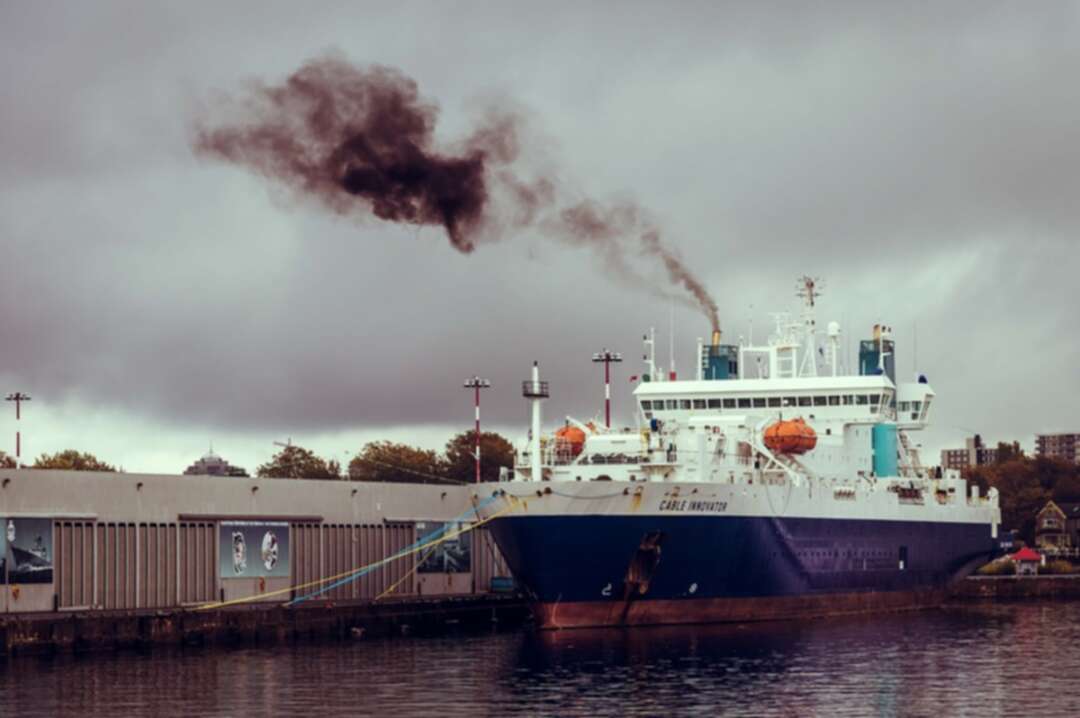-
Report says air pollution in Europe still killing 300,000 a year

The Arab News reported according to AFP that the European Environment Agency said Monday, premature deaths caused by fine particle air pollution have fallen 10 percent annually across Europe, but the invisible killer still accounts for 307,000 premature deaths a year.
According to an EEA report, if the latest air quality guidelines from the World Health Organisation were followed by EU members, the latest number of fatalities recorded in 2019 could be cut in half.
Deaths linked to fine particular matter — with a diameter below 2.5 micrometres or PM2.5 — were estimated at 346,000 for 2018.
The European Union's air pollution data centre said, the clear reduction in deaths for the following year were put down partly to favourable weather but above all to a progressive improvement in air quality across the continent.

According to the report, in the early 1990s, fine particles, which penetrate deeply into the lungs, led to nearly a million premature deaths in the 27 EU member nations.
Read more: Mohammed bin Salman announces establishment of first nonprofit city in the world
That figure had been more than halved to 450,000 by 2005.
In 2019, fine particulate matter caused 53,800 premature deaths in Germany, 49,900 in Italy, 29,800 in France and 23,300 in Spain.
Poland saw 39,300 deaths, the highest figure per head of population.
The EEA also registers premature deaths linked to two other leading pollutants, but says it does not count them in its overall toll to avoid doubling up.
Deaths caused by nitrogen dioxide — mainly from car, trucks and thermal power stations — fell by a quarter to 40,000 between 2018 and 2019.
Fatalities linked to ground-level ozone in 2019 also dropped 13 percent to 16,800 dead.
Read more: Netherlands announces partial lockdown amid surging Covid-19 cases across Europe
The agency said, air pollution remains the biggest environmental threat to human health in Europe.
Heart disease and strokes cause most premature deaths blamed on air pollution, followed by lung ailments including cancer.
In children, atmospheric pollution can harm lung development, cause respiratory infections and aggravate asthma.
Even if the situation is improving, the EEA warned in September that most EU countries were still above the recommended pollution limits, be they European guidelines or more ambitious WHO targets.
According to the UN health body, air pollution causes seven million premature deaths annually across the globe — on the same levels as smoking and poor diet.
In September, the alarming statistics led the WHO to tighten its recommended limits on major air pollutants for the first time since 2005.
"Investing in cleaner heating, mobility, agriculture and industry improves health, productivity and quality of life for all Europeans, and particularly the most vulnerable," said EEA director Hans Bruyninck.
The EU wants to slash premature deaths due to fine air pollution by at least 55 percent in 2030 compared to 2005.
If air pollution continues to fall at the current rate, the agency estimates the target will be reached by 2032.
However an ageing and increasingly urbanised population could make that more difficult.
The report said: "An older population is more sensitive to air pollution and a higher rate of urbanisation typically means that more people are exposed to PM 2.5 concentrations, which tend to be higher in cities."
Source: arabnews
You May Also Like
Popular Posts
Caricature
BENEFIT Sponsors BuildHer...
- April 23, 2025
BENEFIT, the Kingdom’s innovator and leading company in Fintech and electronic financial transactions service, has sponsored the BuildHer CityHack 2025 Hackathon, a two-day event spearheaded by the College of Engineering and Technology at the Royal University for Women (RUW).
Aimed at secondary school students, the event brought together a distinguished group of academic professionals and technology experts to mentor and inspire young participants.
More than 100 high school students from across the Kingdom of Bahrain took part in the hackathon, which featured an intensive programme of training workshops and hands-on sessions. These activities were tailored to enhance participants’ critical thinking, collaborative problem-solving, and team-building capabilities, while also encouraging the development of practical and sustainable solutions to contemporary challenges using modern technological tools.
BENEFIT’s Chief Executive Mr. Abdulwahed AlJanahi, commented: “Our support for this educational hackathon reflects our long-term strategic vision to nurture the talents of emerging national youth and empower the next generation of accomplished female leaders in technology. By fostering creativity and innovation, we aim to contribute meaningfully to Bahrain’s comprehensive development goals and align with the aspirations outlined in the Kingdom’s Vision 2030—an ambition in which BENEFIT plays a central role.”
Professor Riyadh Yousif Hamzah, President of the Royal University for Women, commented: “This initiative reflects our commitment to advancing women in STEM fields. We're cultivating a generation of creative, solution-driven female leaders who will drive national development. Our partnership with BENEFIT exemplifies the powerful synergy between academia and private sector in supporting educational innovation.”
Hanan Abdulla Hasan, Senior Manager, PR & Communication at BENEFIT, said: “We are honoured to collaborate with RUW in supporting this remarkable technology-focused event. It highlights our commitment to social responsibility, and our ongoing efforts to enhance the digital and innovation capabilities of young Bahraini women and foster their ability to harness technological tools in the service of a smarter, more sustainable future.”
For his part, Dr. Humam ElAgha, Acting Dean of the College of Engineering and Technology at the University, said: “BuildHer CityHack 2025 embodies our hands-on approach to education. By tackling real-world problems through creative thinking and sustainable solutions, we're preparing women to thrive in the knowledge economy – a cornerstone of the University's vision.”
opinion
Report
ads
Newsletter
Subscribe to our mailing list to get the new updates!






















